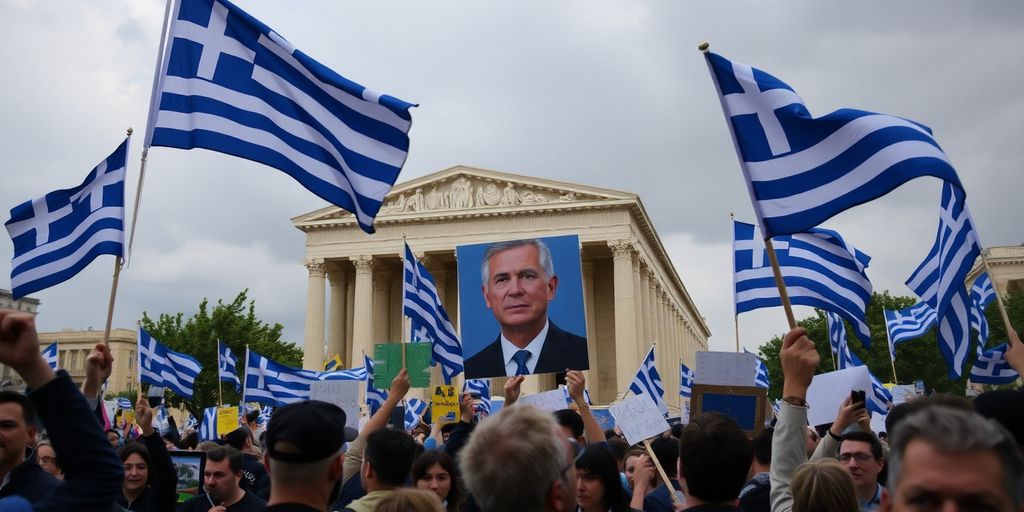Greece has elected Constantine Tassoulas as its new president, succeeding Katerina Sakellaropoulou. The election took place in the backdrop of significant protests demanding accountability for a tragic train crash that occurred in 2023, which claimed 57 lives. Despite the unrest, Tassoulas secured the necessary votes to assume the largely ceremonial role.
Key Takeaways
- Constantine Tassoulas elected as Greece’s new president with 160 votes in parliament.
- Protests erupted over the government’s handling of the 2023 train disaster.
- Tassoulas is a close ally of Prime Minister Kyriakos Mitsotakis.
- The election reflects ongoing political tensions in Greece.
Election Details
On February 12, 2025, Greece’s parliament convened to elect a new president. Constantine Tassoulas, a seasoned politician and former parliamentary speaker, was the nominee from the ruling conservative party, New Democracy. He received 160 votes from the 276 lawmakers present, surpassing the required majority of 151 votes in the fourth round of voting.
Tassoulas will take over from Katerina Sakellaropoulou, who made history as Greece’s first female president. Her term is set to expire on March 13, 2025, coinciding with Tassoulas’s swearing-in ceremony.
Background of Protests
The election was marred by protests outside the parliament, where demonstrators expressed their anger over the government’s perceived failure to address the aftermath of the 2023 train crash. This disaster, which involved a collision between a freight train and a passenger train, resulted in the deaths of 57 individuals, many of whom were students.
Critics argue that during his tenure as parliamentary speaker, Tassoulas did not facilitate a thorough investigation into the political responsibilities surrounding the tragedy. The ongoing judicial probe has yet to yield significant results, leading to public frustration and demands for accountability.
Political Implications
Prime Minister Kyriakos Mitsotakis endorsed Tassoulas, citing his political experience and ability to unify the country. However, the nomination has been viewed by some analysts as a strategic move to consolidate power within the ruling party, which holds a slim majority in parliament.
Opposition parties, including the centre-left PASOK and leftist SYRIZA, did not support Tassoulas’s candidacy, proposing alternative candidates instead. This division highlights the growing political tensions in Greece, particularly in light of the recent protests and the ongoing investigation into the train disaster.
Conclusion
As Greece prepares for a new presidential term, the election of Constantine Tassoulas comes at a critical juncture. The public’s demand for justice regarding the train crash remains a pressing issue, and how the new president addresses these concerns will be closely watched. The political landscape in Greece continues to evolve, with the potential for further unrest as citizens seek accountability and reform in the wake of tragedy.
Sources
- play, Al Jazeera.
- Konstantinos Tasoulas elected new president of Greece | eKathimerini.com, eKathimerini.com.
- Greece elects former parliament speaker as new president | WTVB | 1590 AM · 95.5 FM | The Voice of Branch County, WTVB.
- Greece elects former parliament speaker as new president | Reuters, Reuters.
- Greece elects former parliament speaker as new president | WTAQ News Talk | 97.5 FM · 1360 AM | Green Bay, WI, WTAQ.






